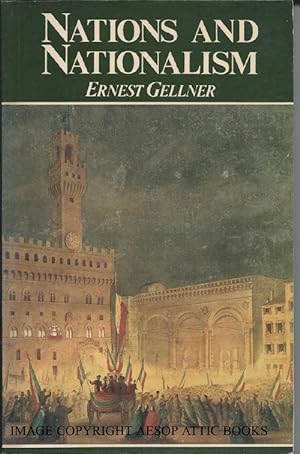

However, if there is not a shared ‘ethnicity’, then assimilation will not occur but rather are excluded from society. If both communities share language and culture, (‘ethnicity’) then assimilation is possible through standardized education. According to Gellner, there are two possibilities, assimilation or lack of assimilation. Therefore, individuals in the community which industrialized later lack the opportunities that those in the already industrialized community possess. Gellner notes that industrialization does not spread evenly among all of the communities within the ‘state’. In industrial society the barriers between communities are broken due to a standardized, mass education which allows for economic and social mobility. There was also no imposition of a high culture due to a lack of standardized education.Īccording to Gellner, this changes with the rise of industrialism. Therefore, these communities did not wish to impose their language or culture on neighboring communities. Peasants were born as farmers and died as farmers with no possibilities of economic mobility or social advancement due to lack of a standardized education.

These separate communities while bound under the ‘state’ do not necessarily share common language, memories, myths, religion or ancestry. There was strict boundaries between communities (fiefdoms) as well as between classes. For Gellner, society before industrialism, was vertically bound with over 80 percent of the population being peasant farmers. His most prominent theory on the origin of nationalism starts by regarding the transformation of society from an agrarian based economy and social structure to one centered around industrialism.

For Gellner, nationalism is the imposition of a high culture on society replacing local, low cultures and most multiculturalism. From his experience as an ‘outsider’, he develops his first thoughts on identity politics and nationalism. Not feeling at home, Gellner went back to England to pursue an academic career. Upon his return to Prague after the war, he found a much changed city that had lost most of its multiculturalism. As a Jewish Czech, Gellner was forced to leave his home in 1939, fleeing Prague for England in the wake of Hitler’s takeover of Czechoslovakia. Gellner was introduced to nationalism and identity politics during his youth. Ernest Gellner is widely seen as one of the most important theorists in the study of nationalism.


 0 kommentar(er)
0 kommentar(er)
